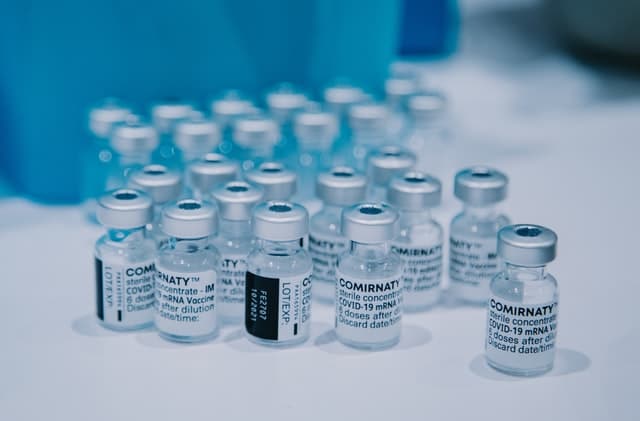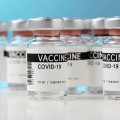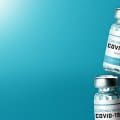A message from Monica Sarang, MD
The rapidly changing guidelines around COVID booster shots may seem confusing, and even concerning. However, be reassured that while the process may seem protracted, it is actually being accelerated, and still allowing for open discussion and a wide range of perspectives. I trust the teams of accomplished scientists on the Centers for Disease Control (CDC) and the U.S. Food and Drug Administration (FDA) advisory boards who have many years of expertise in infectious disease and vaccine development. The following is a synopsis of the latest recommendations which I hope will help answer your most urgent questions. I’ll continue to keep you updated as additional data comes in and new recommendations are made regarding issues not yet resolved, including: boosters for Moderna and J&J, ‘mixing and matching’ vaccines and boosters, vaccine approval for children under 12.
Who is now eligible for COVID boosters? The CDC and FDA have now recommended a Pfizer COVID booster vaccine at least six months after the second shot as follows:
- people 65 years and older and residents in long-term care settings should receive one
- people aged 50–64 years with underlying medical conditions should receive one
- people aged 18–49 years with underlying medical conditions may receive one
- people aged 18-64 years who are at increased risk for COVID-19 exposure and transmission because of occupational or institutional setting, such as healthcare workers and teachers, may receive one
CLICK HERE for the CDC’s current list of underlying medical conditions at high risk for severe COVID.
What’s next? It is expected that national rollout plan will be launched shortly, and Pfizer boosters for eligible people will be administered in a similar way to the initial doses. Check the LA County public health website for the latest information and to sign up for a booster if you’re eligible. Please note that the vaccine effectiveness wanes gradually over time, and the booster is not required to be given at exactly six months.
Why is only the Pfizer vaccine being considered for the booster at this time? Currently Pfizer is the only company to have completed their booster study and presented data. Studies on Moderna and J&J boosters are still in progress and we don’t yet know the best interval for a booster shot; for Moderna, we also don’t know if the full strength is needed for a booster or a lower dose may be sufficient. Until the studies are concluded, another dose of Moderna or J&J is not recommended for anyone except immunocompromised patients. It is expected that Moderna and J&J data will be submitted to and considered by the FDA and CDC in a matter of weeks.
Is the Pfizer booster dose the same as the first two doses? Yes, it is identical.
Is it safe to switch vaccines for the booster shot? No, at this point, the vaccines are not considered interchangeable – if you started with Pfizer, stick with Pfizer, and the same for Moderna and J&J. Recent data showing Moderna prevented 93% of hospitalizations versus Pfizer’s 88% and Janssen’s 71% may seem like compelling reasons to change which vaccine to get as your booster. However, there is not enough data to ensure it is safe to switch, and it is NOT advised. The CDC will explore this issue separately and issue its recommendations – current recommendations only apply to Pfizer.
Will the vaccine’s effectiveness lessen with time? As with most vaccines, immunity wanes with time. All vaccinated patients may need a COVID booster at some point but when and with what remains in flux. Pfizer data indicates a gradually declining trend in vaccine efficacy; additional research shows that a booster dose given 6 months after the second dose elicited very high neutralization antibody titers that in theory should be more protective. When a study from Israel showed that people immunized earliest had the highest likelihood of breakthrough infections, the country began offering a third dose of the Pfizer vaccine to those who are immunocompromised or older than 60. However, we have to be careful interpreting antibody studies as they don’t account for cellular immunity induced by viruses. Some CDC committee members pointed out the antibodies needed to prevent infection may naturally wane a few weeks to months after the injection, but the immune cells that prevent illness from progressing can remain stable many months after the first dose.
Why are vaccinated people getting COVID? As people return from summer vacation, kids go back to school, adults start going into the office and people resume meeting in groups, it’s to be expected that cases of the virus will increase. While vaccinated patients are less likely to be hospitalized and die of COVID, it is still possible for someone who is vaccinated to get COVID. These ‘breakthrough cases,’ defined as vaccinated persons testing positive for COVID, usually present with symptoms similar to that of a common cold or allergies. Most are resolved in a few days. The best way to protect yourself is to get vaccinated and wear a mask when appropriate.
What is being seen regarding side effects from the vaccines? It has been reported that younger people, especially males, can experience mild myocarditis (an inflammation of the heart). While still considered a rare side effect that generally resolves itself, it’s one of the reasons the CDC was waiting for more data regarding the safety of vaccines for children younger than 12. On Monday, Sept. 20th Pfizer submitted data showing that a two-dose regimen of their COVID vaccine – in a smaller dosage than given to those over 12 – was safe and effective for children ages 5 to 11. Approval could be granted as soon as next month.
Is it safe to get the flu and COVID booster together? Although there is no contraindication to getting both vaccines at one time, I advise you to space out your vaccines by 2 to 4 weeks in order to avoid any potential adverse reaction.
Stay well, and as always, please reach out to me should you have questions.






Comments 1
Thanks for the update. It helps.